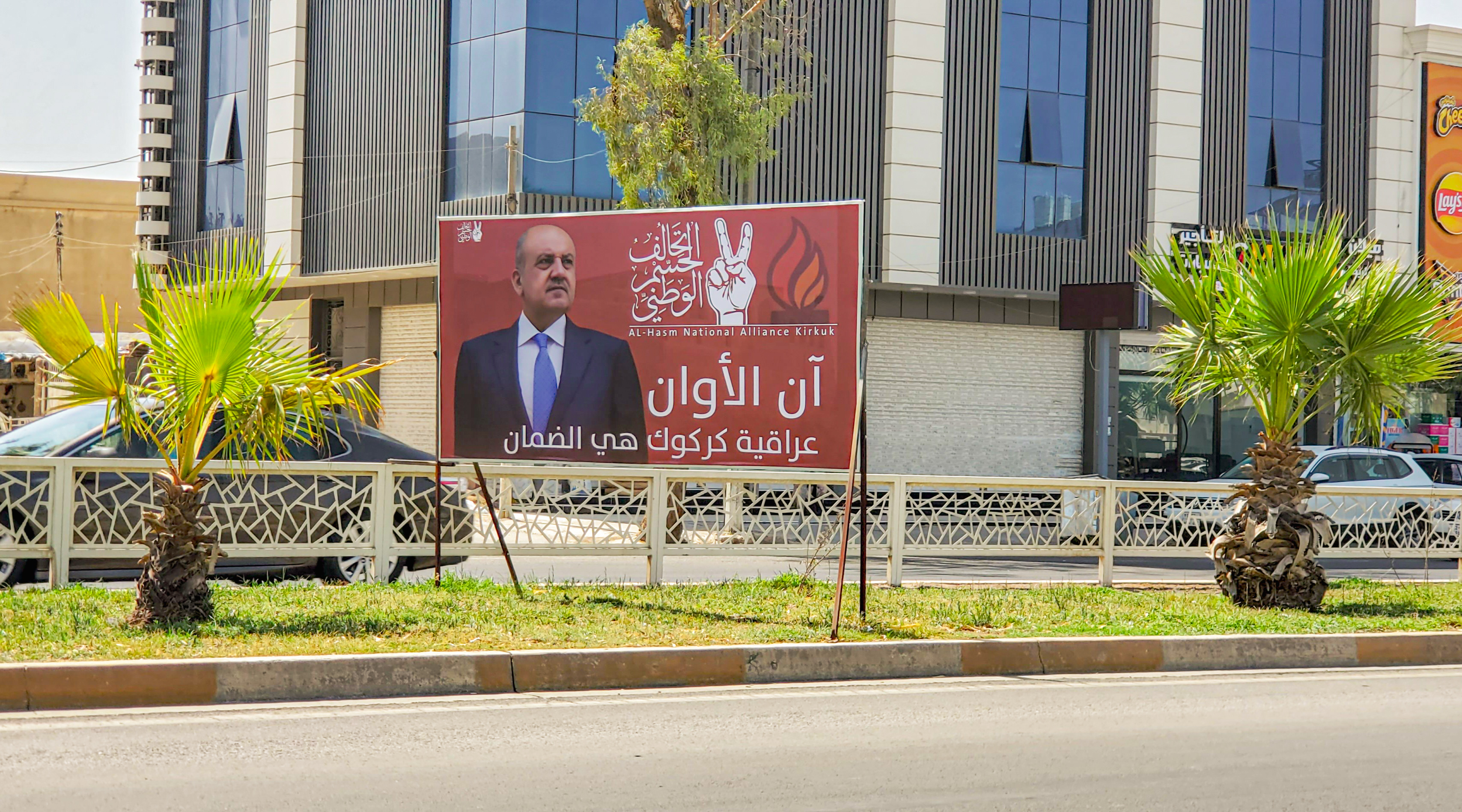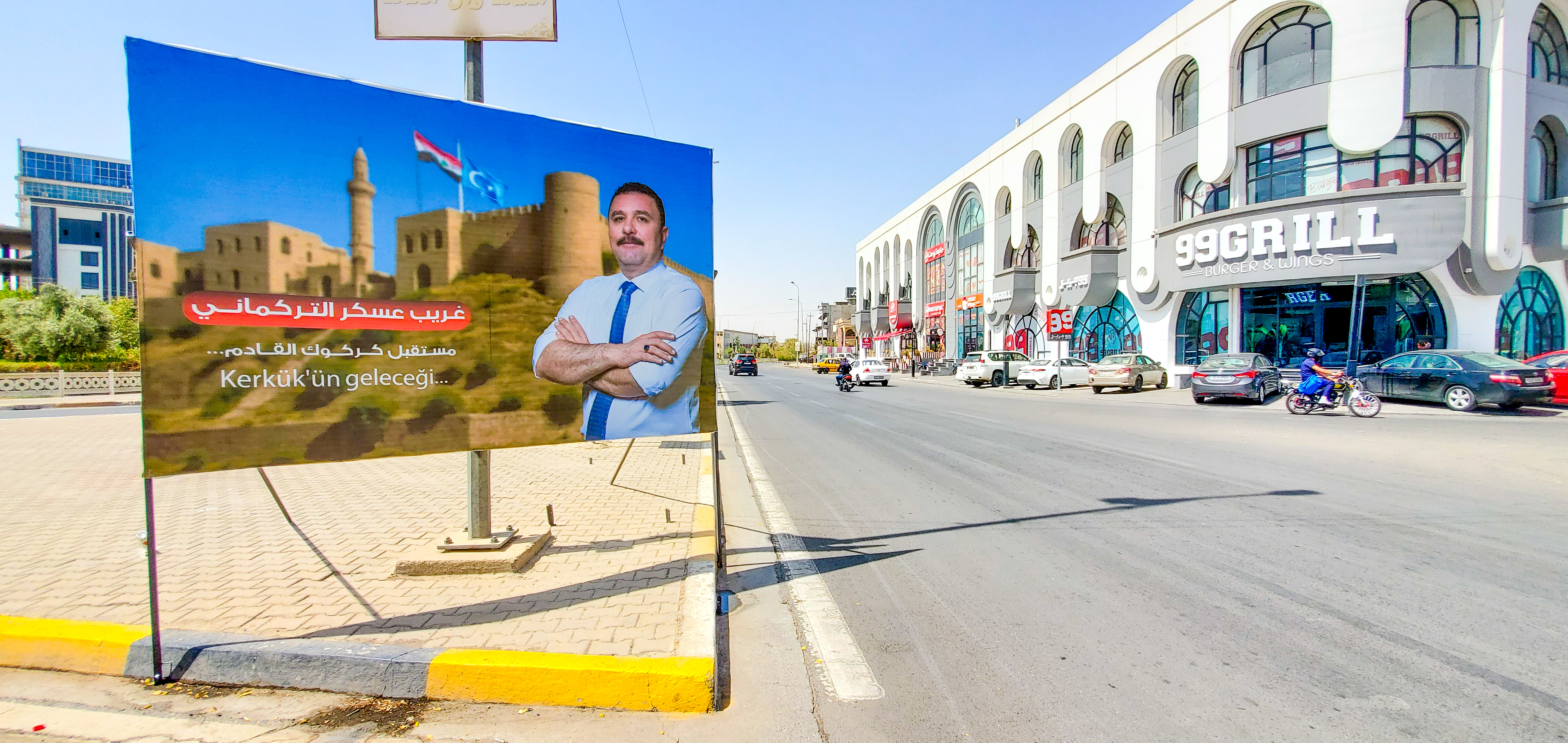Some parties and candidates have started hanging posters and campaign slogans in Kirkuk, but the Independent High Electoral Commission IHEC states that these actions are not considered violations unless they include the numbers of the entities and candidates.
The posting of posters on main streets is happening three months before the Iraqi parliamentary elections scheduled for November 11. The Electoral Commission in Iraq has not yet announced the start date for the campaign.
Ali Abbas, a spokesperson for the Kirkuk office of the Electoral Commission, informed KirkukNow, "We are aware that some parties and groups have already started their campaigns by hanging posters and pictures of their candidates in the city."
"If the posters do not include any numbers, this is not considered a violation and will not result in any penalties," he further explained.
"If the poster or image includes the candidate's number or the coalition's number, they will certainly face penalties."

The Kirkuk Electoral Commission's office had previously requested the Kirkuk Municipality to remove posters and flexes containing early election campaigns. The municipality responded by launching a campaign to remove the posters from sidewalks, but they are being reposted.
According to Electoral Commission statistics, there are 1.2 million eligible voters in Kirkuk. The spokesman of the commission, indicated that only 78 percent of them have updated their registrations.
In Kirkuk Province, 252 candidates are competing for 13 parliamentary seats, one of which is a quota seat for the Christian component.
The early launch of election campaigns in Kirkuk occurs as Abbas emphasized that "the commission has not yet set a date for the start of election campaigns, amid reports that campaigning for the parliamentary elections will last more than 30 days."
The northern, multiethnic, oil-rich province of Kirkuk home to over 1.77 million people is a disputed area between the federal government of Iraq and the Kurdistan Regional Government KRG, and the decision of its fate is within the framework of Article 140 of the constitution through three stages of normalization, census, and referendum.





